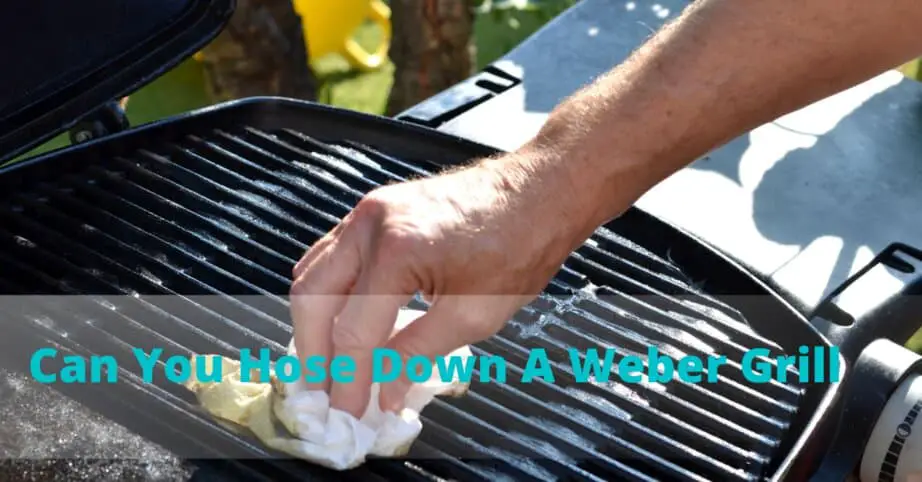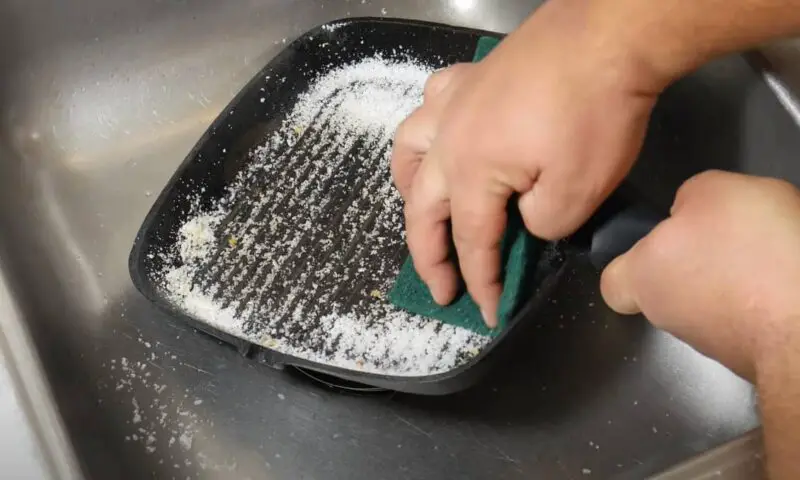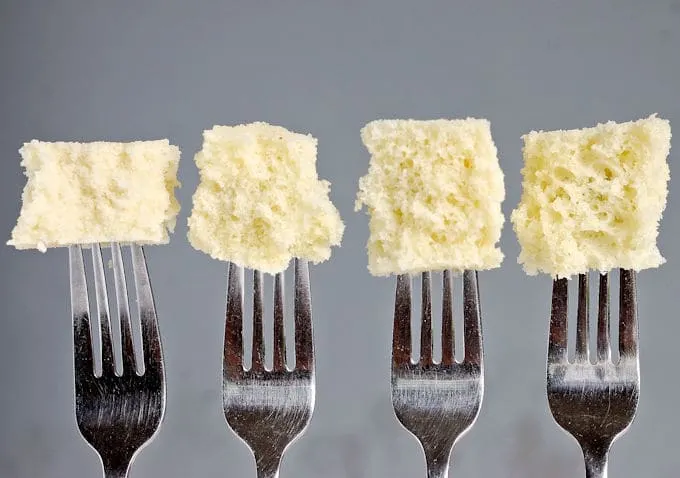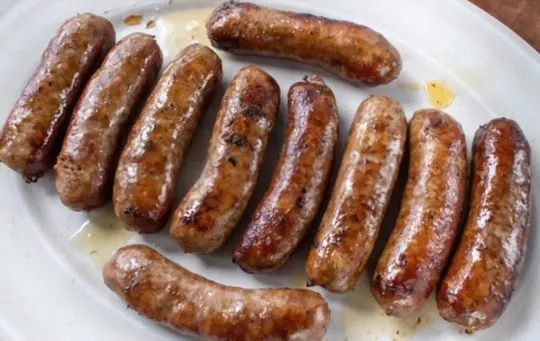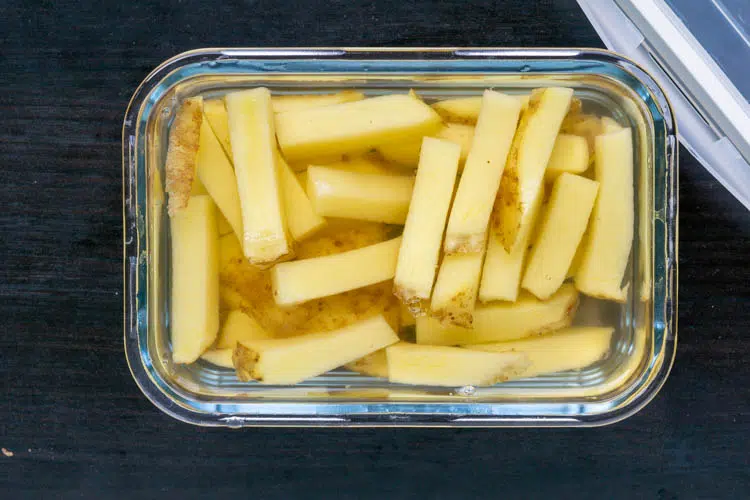Gas grills are one of the most common outdoor cooking appliances used for barbecues, cookouts, and family gatherings. However, with frequent use comes the accumulation of grease, food residue, and other debris that can affect the taste of your food and even pose a fire hazard. Therefore, cleaning your gas grill is crucial to ensuring its longevity and your safety.
In this article, we’ll explore different methods for cleaning your gas grill and answer the question: can I clean my gas grill with a hose? We’ll also discuss the importance of maintaining your grill in good condition and share some tips on how to keep it clean throughout the year.
## What is a Gas Grill and How Does it Work?
A gas grill is an outdoor cooking device that uses propane or natural gas as fuel to heat up metal burners under the cooking surface. These burners produce flames that provide direct heat to cook your food. A gas grill usually consists of a metal body, steel or cast iron cooking grates, a regulator to control gas pressure, an ignition system to start up the burners, and a propane tank.
Gas grills have become increasingly popular since their invention in the 1960s because they offer many advantages over traditional charcoal grills. With a gas grill, you can easily adjust the temperature using a knob or controller, which allows for more precise cooking – something that’s not possible with charcoal. Gas grills are also faster to start up and require less maintenance than charcoal grills.
## Why Clean Your Gas Grill? The Importance of Grill Maintenance
Cleaning your grill regularly is essential for several reasons:
### Safety concerns
One reason why you should clean your grill regularly is to prevent grease fires. Grease buildup on the grill grates or in the catch pan can ignite when exposed to high heat, causing flames to flare up suddenly and resulting in serious burns or property damage.
According to the National Fire Protection Association (NFPA), there are over 10,000 grill-related fires in the United States every year, resulting in thousands of injuries and millions of dollars in property damage. Grease fires account for a significant portion of these incidents.
Inhaling smoke from burning food residues or grease can also pose a health risk, especially to individuals with respiratory issues.
### Extension of Grill Life-Span
Cleaning your grill regularly can extend its lifespan by preventing corrosion and rust. These can occur when moisture and acid from food particles accumulate on the metal grates or other parts of the grill.
A study conducted by Weber-Stephen Products LLC found that frequent cleaning of grates and interior surfaces is one of the most significant factors in preventing rust. The longer you go without cleaning your grill, the more challenging it becomes to remove accumulated gunk and debris, making it more likely that you’ll need to replace parts or even the whole grill.
### Food Quality and Taste Improvement
Not cleaning your grill regularly can also affect the taste and quality of your food. Burnt food debris on the grates can stick to your new meal, causing a bitter flavor. Over time, incomplete removal of charred bits, meat residue and melted fat creates harmful carbon deposits on the surface of grates. This fat accumulation may produce an unwanted flame flare-up while cooking that produces carcinogenic smoke which is not great for human bodies.
## Traditional Methods for Cleaning Your Grill
There are several methods for cleaning a gas grill:
### Pre-Cleaning measures
Before deep cleaning, you need to clear off any large or visible debris from your ironcast grates with a stainless steel brush or scraper. For best results, ensure to follow up with gentle sweeping motions using a soft-bristled brush or cloth soaked in warm soapy water. this helps to removes tiny debris that may be missed when scraping the larger areas.
### Deep cleaning methods for chrome burners
Cleaning your chrome cover burners or tip blanks isn’t always the easiest thing. However, the following tips will guide you to wash them effectively:
Step 1: Soak grates in hot water and use a stainless steel brush to scrub away any cooked-on food or grime.
Step 2: Turn off the gas, disconnect propane tank and unscrew grill burners. Avoid forcing the flame deflectors out from around burners.
Step3: Use a pressure washer tool with a high-pressure nozzle setting at 1,500 psi or more for an effective clean that removes built-up grease and debris. Cleaning points should Also be selected for regulating required pressure density on your grill burners
### Other methods for cleaning pipes and ignition system
Cleaning your pipes and ignition system can prevent blockage due to soot and increase spark output:
In summary
-Disconnect propane tank
-Switch off all components of the grill
-Clean grease trays/plates, wires, pipes.
-For optimal cleaning, one should adhere to manufacturer’s specifications.
## Hose Method for Cleaning Your Gas Grill
One question many people ask is whether they can clean their gas grill using a hose. The answer is yes, you can use a hose to clean your grill. However, there are certain precautions you need to take when doing so.
Here’s how to do it:
### Tools Required for Hose Method
You need the following when using a hose method to clean your gas grills:
– Water Hosepipe – this needs only be fitted with an adjustable spray nozzle (not a pressure washer).
– Spray nozzle with three pressure options (high, medium, low)
– Soft sponge
– Plastic scraper or putty knife if necessary
### Cleaning Steps when Using a Hose Method
Here are some steps to follow when cleaning your gas grill using a hose:
1. Disconnect the gas tank and remove any attachments.
2. Wipe down the exterior of the grill with a soft sponge or cloth soaked in soapy water and rinse off with a water hose.
3. Remove the grates and drip tray from your grill, discard used drippings safely to avoid food contamination.
4. Use different water pressures starting from low to high pressure depending on the debris type.
5. Scrap-off any excess grease using a plastic scraper. Metal objects should be avoided as they can scratch and damage the surface of your grill instead of cleaning it.
## Precautionary Measures When Using Your Hose Method
When cleaning your gas grill with a hose, you need to take certain precautions:
### Safety tips and precaution measures to follow when washing with a hose
Always ensure all electrical components are turned off and disconnected before cleaning with water – this will decrease the risk of electrocution.
Ensure the amount of water is enough to dampen all surfaces but not too much water that may accumulate at the bottom, which could lead to rusting – Optimally, use semi-warm water from a standard faucet temperature.
### Handling Engineered materials
Cleaning porcelain grills require careful handling due to delicate material components. It’s essential to avoid using abrasive materials like metal scrapers or harsh chemicals, as they can cause permanent damage. If you used excessive force while cleaning this may result in hardened grease particles falling on your surfaces. Therefore when working on porcelain materials, special care is needed to clean your grill effectively.
## Importance of Grill upkeep for Restaurant Owners
Restaurants’ health inspection reports depend highly on their levels of hygiene upheld in appliances such as gas grills as required by food safety guidelines which should be done frequently at regular intervals.
Proper grill maintenance results in extending your restaurant’s gas grills’ lifespan, reducing repair costs, avoiding lengthy downtimes, and thus boosting business productivity.
Lastly, regular cleaning conveys values such as commitment through health policies to clients who wish to engage with reputable establishments that have established quality of hygiene and cleanliness.
## DIY Items That Can Be Used To Clean A Gas Grill
For those looking for natural ways to clean their gas grill there are several DIY items that can be used such as:
### Non-toxic natural cleaners
– Baking Soda and vinegar solution: When mixed with water, baking soda can effectively remove grease.
– Lemon juice: Lemon acid’s weak acidity helps remove baked-on grease.
– Hot water: Hot water’s temperature works by softening the tough grime and making it easier to rub-off with brushes or sponges.
### Components to avoid using due to reactions or damage they could cause
– Acidic cleaners: Avoid using cleaners high in acidity, such as commercial grill acids, lime juices. These may result in corrosion and rusting.
– Abrasive materials: Materials like steel brushes more so those containing wire bristles – just a puff from this can lead to inhalation of steel wires fragments and lead to injuries/problems which is mostly overlooked on your food after cleaning
It’s essential to check the product labels before purchasing them
## Tips for Keeping Your Grill Clean Throughout The Year
Cleaning your gas grill doesn’t have to be a daunting task if you keep up with a regular maintenance schedule. Below are tips on how you can keep your gas grill clean throughout the year:
### After every usage
Proper Preheating and Checking Your Catches/Enclosures Options – Before cooking, preheat your grill or burners at the desired temperature set while checking around for hazardous residues. Use stainless steel brushes or sponges for removing debris before grilling.
Brushing the Grates – Always brush your grill grates after each use with stainless steel brushes. This will help prevent grease from building up and give you better heat distribution.
### Weekly Maintenance
Cleaning burners and cook box area thoroughly – Ensure the burners are turned off but the grill is still hot before scrubbing any dirt, especially around the burner knob areas.
### Monthly Maintenance
Deep cleaning is done most appropriately after every 5 or 6 grilling activities, here is how to carry it out:
– Heat up your grill’s element for 10 to 15 minutes to loosen any stubborn stains and baked-on debris.
– Turn-off and unplug your grill.
– Start by removing your grates and any other removable parts of the grill that can be detached easily for safe washing, including grease plates, burners, flame tamers or heat shields.
– Soak burners in vinegar or soapy solution for about 30 minutes
– Scrubbing of grates should be done using a sponge while avoiding scratching them.
– Drying all parts should be done carefully if not let air dry from sunlight to avoid contamination.
## Conclusion
In conclusion, cleaning your gas grill regularly ensures it lasts longer and is safer to use. While there are several methods for cleaning a gas grill, a hose method can be effective under the right circumstances despite some precautions to follow.
It’s important for restaurant owners to prioritize making hygiene and cleanliness their utmost commitment to please clients and reduce possible lawsuits. Lastly utilizing natural DIY cleaners can also save you time and costs involved with buying commercial cleaners which may not perform as expected.
Through implementing these guidelines for tips on how to keep your grill clean throughout the year you’re likely bound to have an efficiently run appliance which protects your health at large.
Can I clean my gas grill with a hose?
Yes, you can! In fact, using a hose is one of the easiest and most effective ways to clean your gas grill. Simply turn off the gas and disconnect the tank, then use a high-pressure hose to spray all surfaces of the grill, including the grates, burners, and inside of the lid.
What should I use to clean my gas grill?
In addition to a hose, you can also use a grill brush and some soapy water to clean your gas grill. First, use the brush to remove any stuck-on debris from the grates and burners. Then, mix up some warm water with dish soap and use a sponge or cloth to wipe down all surfaces. Rinse everything thoroughly with a hose when you’re finished.
How often should I clean my gas grill?
It’s a good idea to clean your gas grill after each use, especially if you cook things like fatty meats or sticky marinades that are prone to leaving residue on the grates. However, a more thorough cleaning with soap and water can be done every few months to keep your grill in top shape.
Are there any parts of my gas grill that should not be cleaned with a hose?
While most parts of your gas grill can handle being sprayed down with a hose, there are a few exceptions. Avoid spraying water directly into the control panel or ignition system, as this could cause damage. Additionally, if you have a ceramic or porcelain-coated grill grate, be careful not to use too much pressure when cleaning with a hose as this could chip or damage the coating.
